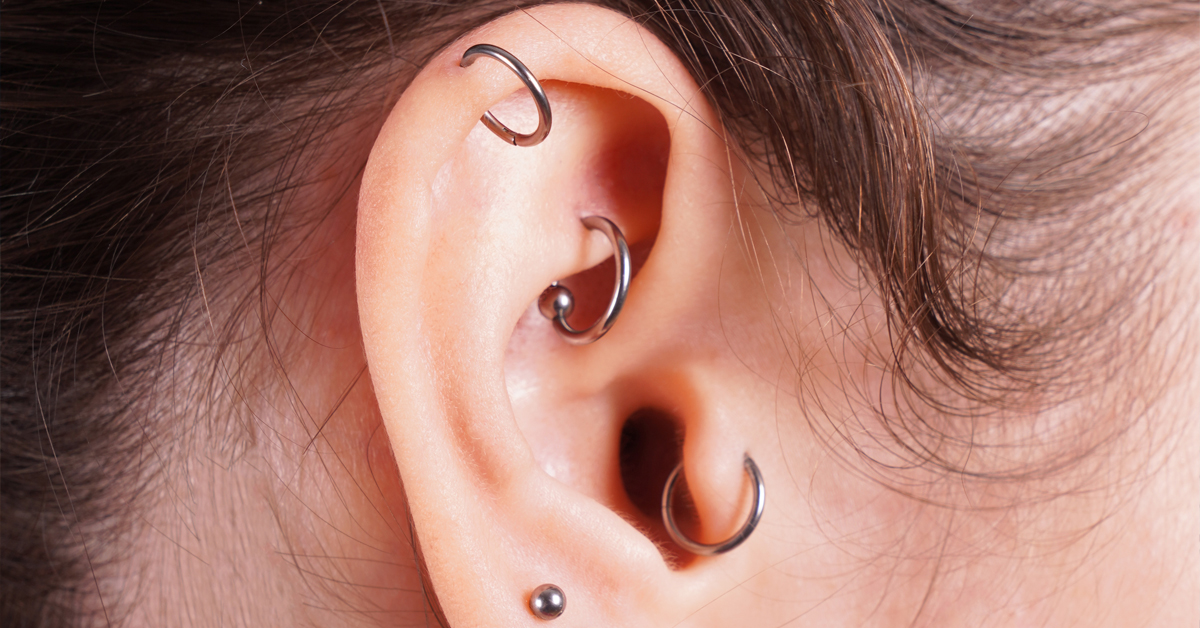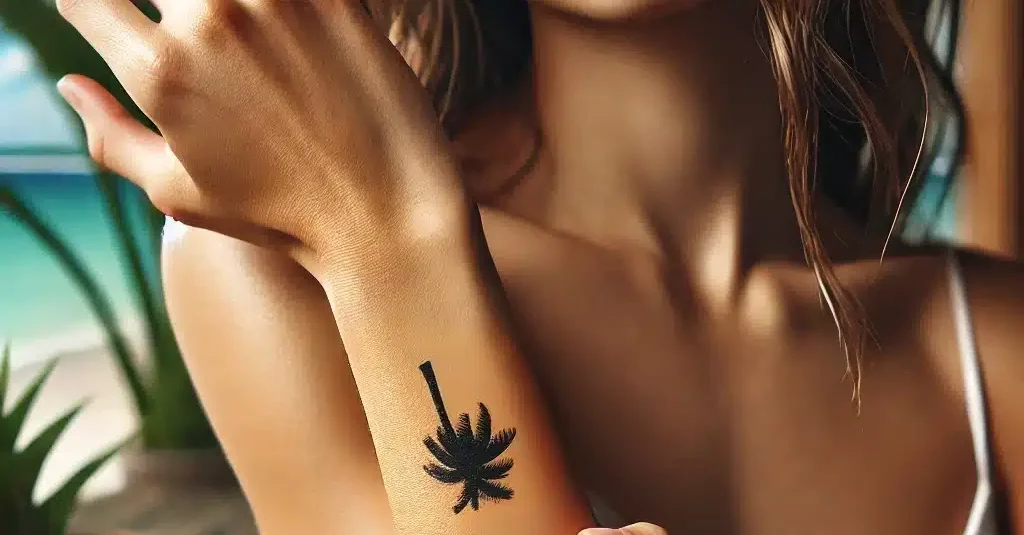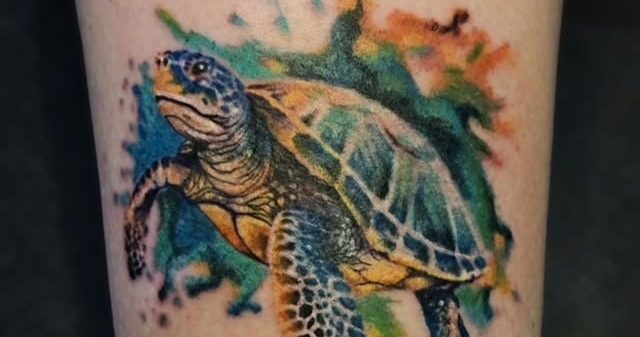What’s Trending in Destination Tattoos Right Now Travel is more than just seeing new places—it’s…

This Year’s Hottest Piercings
January 16, 2020Just a couple weeks into 2020, K-pop stars are even experimenting with unconventional placements too. (See: JB’s anti-eyebrow and HyunA’s collarbone dermals.) This seems to be the year to go under the piercing needle. With that in mind, I asked five piercing experts what the most-requested placements are lately to see what the top piercing trends of 2020 are.
1. Stacks
If you’re looking for a piercing that isn’t that painful and is easy to heal, the stacking trend is your best option. It’s by far the most popular piercing you can get on your lobes in 2020. Every piercer I interviewed brought up the placement.
Most of the time, “a tiny stud is added on top of a hole that already exists,” explains Adrian Castillo, a piercer at 108 Studios, which has locations in New York City and Los Angeles. Alternately, you can get two new piercings placed vertically on your lobe in the place of your second hole.
“The idea came from the necessity of needing to make everyone’s old mall piercings as symmetrical as possible or make it look like they were pierced low on purpose,” he adds. “It’s a fun way to breathe new life into a lobe.”
You can also do the same linear alignment on other parts of your ear too, points out Lisa Bubbers, the cofounder and CMO of Studs, a new piercing studio in New York City. Kaia Gerber recently stopped by to get what Bubbers calls “Snakebites” on the midway point of her helix.
2. Orbital
If you’re not ready for the unconventional-yet-soon-to-be-conventional stacked placement of earrings, Cassie Lopez has an alternative. You can connect your first hole with your second (or second and third) with a seamless hoop to create an orbital piercing.
“I’ve been getting lots of requests for orbitals lately,” says Cassi Lopez-March, owner and piercer at So Gold Studios in New York City. “I think the fact that it’s a simple ring makes it stylish and understated. Also, connecting two holes makes it a little more fun.”
3. Floating Cartilage
For those who are ready to venture outside the lobe area (or have already), consider the flat part at the top of your ear called, well, the flat. “Every time I mark it as an option, people always respond with, ‘Wow, I didn’t even think that part of the ear was possible to pierce,'” Castillo says.
Over at New York City’s Stone and Strand, this placement is called the “floating cartilage,” and it’s the most popular non-lobe piercing. “Instead of piercing the edge of the ear for a hoop, these piercings lay on the flat of the ear and are beautiful, delicate, statement piercings for those who want to amplify a look without overpowering any other aesthetic options,” Janeese Brooks, the shop’s head piercer, explains.
4. Tragus
Tragus is the official name for “the little flap of cartilage on the side of your face that covers your ear canal,” Castillo says. It’s a subtle-yet-adventurous piercing placement that’s continuously popular. I can personally vouch for this one as it’s the first non-lobe piercing I ever got, and it’s one of my favorites. Plus, it’s my ear piercing people ask me most about.
Sam Hayler, the senior piercer at London’s Astrid & Miyu, notes the popularity of tragus piercings stems from their minimalistic appeal. “It’s something a bit different from just getting your regular lobes pierced and we can pierce them with a range of dainty jewelry,” she says. I, for example, have a small stud in mine.
For more information on the pain and healing, you can read about my experience.
5. Nipples
“2020 will be the year of nipple piercings,” Castillo declares.
“We’re only a few weeks in and they’re the most requested,” he continues. “Maybe it has to do with everything happening in the world, and people are just saying to themselves, ‘Screw it. I might as well. I’ve always wanted it, and I’m not sure how much longer we’re gonna last.'” If you’ve been thinking the same thing, you can check out Allure’s guide to nipple piercings.
6. Conch
The inner part of your ear is called your conch, in case you didn’t know. Hayler has seen an increase in customers who are asking for it to be pierced. (She even did mine last time Astrid & Miyu had a pop-up in New York City.) Usually, you start off with a stud. Then, you can change it out to a hoop after six months, Lopez-March says.
Instagram and the ear-cuff jewelry trend has a lot to do with the rise of the conch piercing. “The conch is definitely becoming more popular due to social media as the piercing is getting a lot more coverage,” Hayler says. “People who want a more permanent ear cuff are also leading the way.”
7. Customization
You don’t necessarily need to know exactly what you want to get pierced after making an appointment at your favorite studio. One of the biggest trends is trust, if you ask Castillo and Brooks. Allow your piercer to pick what works best for your ear shape for your own custom ear party.
“Right now, it seems like people come in with a vague idea of what they want, but it almost always ends up changing by the time they sit down with me,” Castillo points out.
He goes on to mention that he’s gotten a reputation for being good at letting people know what will work for them. I can attest to that as I’ve accompanied my friend Brooke a couple of times, and she tells Castillo to do whatever he wants. He usually marks a couple of spots, and she picks her favorite. “It’s really humbling to have free reign on people’s ears,” he adds.
No matter which of these piercing trends you decide to try out, please get them done by a professional to eliminate as many risks as possible. Keep in mind that you should go to a studio that uses pre-sterilized tools that are opened in front of you, recommends TJ Cantwell, the owner of New York City–based Studio 28 Tattoos and Body Piercing. The piercing jewelry should be made out of surgical-grade titanium or gold, which are the least likely to cause infection.
After your appointment, your piercer will tell you the best aftercare routine for your piercing, but typically, you’ll need to cleanse with a saline spray as it heals. if you’re having any issues during the process, be sure to visit your dermatologist.



